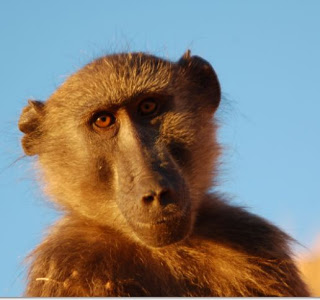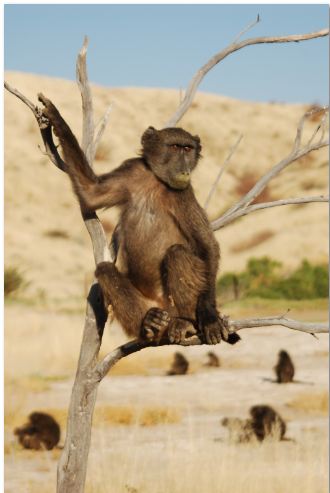

| Visitors Now: | |
| Total Visits: | |
| Total Stories: |

| Story Views | |
| Now: | |
| Last Hour: | |
| Last 24 Hours: | |
| Total: | |
Baboons Are Like Human Shoppers When Foraging For Food
Baboon foraging choices depend on their habitat and social status
Over a six month period in Tsaobis Leopard Park in Namibia, ZSL scientists followed troops of chacma baboons (Papio ursinus) on foot from dawn to dusk. They recognised individual baboons by distinguishing features, and closely observed both the aggressive and friendly social relationships between baboons, noting which food patch they foraged in and who they foraged with. As expected, baboons were more likely to use patches containing more food. More interestingly, they also paid attention to their social relationships with other baboons in the patches.
Harry Marshall, from ZSL and Imperial College London conducted the research. He says: “More dominant baboons preferred using patches containing animals who they were dominant to, and so more likely to be able to steal food from. However, these less dominant baboons seemed to compensate for this by preferring patches containing animals with whom they had good social bonds and so were more likely to tolerate them.”

Credit: ZSL, H. Marshall
ZSL’s Dr Guy Cowlishaw added: “These findings show how animals’ decision-making can be dependent on where they are and who they are. This suggests that some animals can change their behaviour to adjust to a changing environment.”
Scientists at ZSL will continue working with collaborators and use the findings from this study to help them investigate how baboons’ foraging behaviour is affected by changes in the environment, and the impact this will have on socially foraging species in the future.
Contacts and sources:
Smita Chandra
Zoological Society of London





I think it a bit of a stretch to say that a recognition of changed behavior can result from repeated negative outcome is the same as human shopping. Surely there was more findings than this to come to such a sensationalized conclusion. To me that only proves an expected understanding of necessary adaptability to insure survival. I thought it was gonna suggest that they where capable of social welfare by choosing specific foods based on nutritional merit and amount necessary to feed the whole troop or that only certain members were chosen to pic specific foods for a more uniformed system to gain the maximal benefit of foraging.